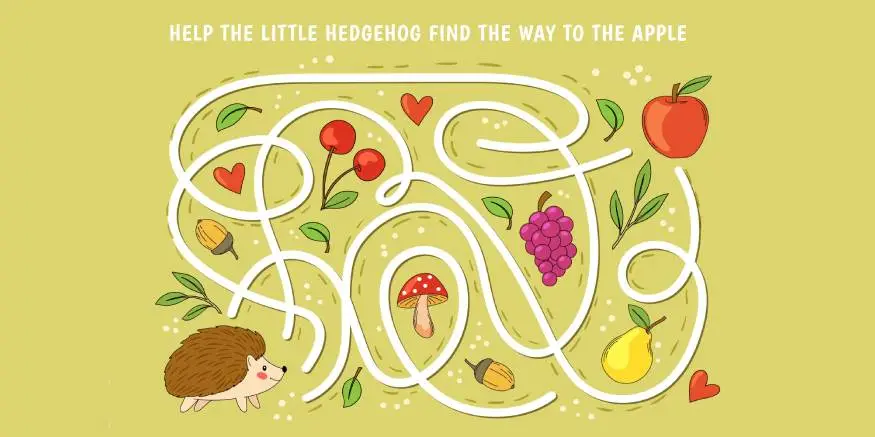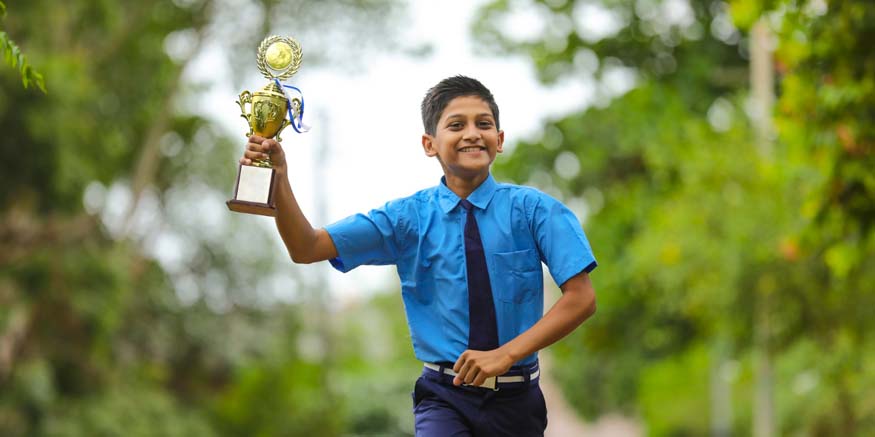Riddles are super fun brain games that people have liked for a long, long time! They make you think hard and are great for making your brain super strong. This story talks about lots of fun riddles for kids of all ages. So, if you’re a mom, dad, teacher, or anyone looking after a kid, these riddles will make them giggle and think!
The Joy of Riddles
Riddles are super cool! They use tricky words and secrets to make you think. They’re not just for fun; they help your brain grow big and strong. Here’s why riddles are awesome for kids:
Encourages Critical Thinking: Riddles are like puzzles that make you think in a tricky way and see things in a new light!
Enhances Vocabulary: They teach us cool new words and sayings that we remember!.
Promotes ProblemSolving Skills: Figuring out riddles means using your smart brain to think and understand. It helps you do good in school!
Builds Confidence: Figuring out a tricky riddle can make a kid feel super proud of themselves!
Also Read: Indoor Activities In Hyderabad
Classic Fun Riddles for Kids
Classic riddles never go out of style. They are simple yet intriguing, making them perfect for younger children.
Riddle 1: What has keys but can’t open locks?
Answer: A piano.
Riddle 2: I speak without a mouth and hear without ears. I have no body, but I come alive with the wind. What am I?
Answer: An echo.
These riddles are excellent starters for kids as they stimulate curiosity and encourage engagement.
Seasonal Fun Riddles
Seasonal riddles can add a festive touch to holidays and special occasions. Here are a couple of fun riddles to enjoy:
Riddle 1: What do you get when you cross a snowman and a dog?
Answer: Frostbite.
Riddle 2: Why did the scarecrow win an award?
Answer: Because he was outstanding in his field.
These riddles can be a delightful addition to holiday gatherings, making them memorable and entertaining for kids.
Animal Riddles for Kids
Animal themed riddles are always a hit with children. They combine fun with learning about different animals and their characteristics.
Riddle 1: I have wings and can fly. I’m not a bird, yet I soar high. What am I?
Answer: A butterfly.
Riddle 2: What has four legs, a head, and leaves, but isn’t alive?
Answer: A dining table.
These riddles can serve as a fun educational tool, enhancing kids’ knowledge about the animal kingdom.
Also Read: Indoor Activities in Bangalore
Silly and Funny Riddles for Adults
Including a section of funny riddles for adults adds an element of family fun, allowing parents to join in the laughter.
Riddle 1: Why don’t scientists trust atoms?
Answer: Because they make up everything.
Riddle 2: What’s orange and sounds like a parrot?
Answer: A carrot.
These riddles provide a lighthearted way for adults to engage with kids, making family time more enjoyable.
Math Riddles for Kids
Math riddles combine numbers with problemsolving, making them perfect for developing mathematical skills in an engaging way.
Riddle 1: I am an odd number. Take away one letter, and I become even. What number am I?
Answer: Seven (remove the “s” and it becomes “even”).
Riddle 2: What number do you get when you multiply all the numbers on a telephone’s number pad?
Answer: Zero (since there’s a zero on the pad).
These riddles help kids see the fun side of math, fostering a positive attitude towards the subject.
Easy Riddles for Adults
Simple riddles can be fun for adults too, especially when shared with kids. These riddles are straightforward but still amusing.
Riddle 1: What has a heart that doesn’t beat?
Answer: An artichoke.
Riddle 2: What can travel around the world while staying in a corner?
Answer: A stamp.
These riddles can be a delightful icebreaker in mixedage gatherings, encouraging adults and children to interact.
Nature Riddles for Kids
Naturethemed riddles can spark a child’s interest in the natural world, making them more curious about their environment.
Riddle 1: I can be cracked, made, told, and played. What am I?
Answer: A joke.
Riddle 2: What has a bark but no bite?
Answer: A tree.
These riddles encourage kids to observe and appreciate nature, promoting outdoor learning experiences.
Also Read: Fun Activities In Pune
Mystery Riddles for Kids
Mystery riddles can add an element of excitement and intrigue, encouraging kids to think deeply and critically.
Riddle 1: The more you take, the more you leave behind. What are they?
Answer: Footsteps.
Riddle 2: What gets wetter the more it dries?
Answer: A towel.
These riddles are perfect for sparking discussions and encouraging kids to share their ideas and reasoning.
Wordplay Riddles
Wordplay riddles play with language, challenging kids to think about words in creative ways.
Riddle 1: What word is spelled incorrectly in every dictionary?
Answer: Incorrectly.
Riddle 2: What five-letter word becomes shorter when you add two letters to it?
Answer: Short (add “er”).
These riddles help kids develop a love for language and improve their verbal skills.
Object Riddles for Kids
Riddles about everyday objects can help kids understand the world around them better.
Riddle 1: I’m light as a feather, yet the strongest man can’t hold me for much longer than a minute. What am I?
Answer: Breath.
Riddle 2: I have hands but can’t clap. What am I?
Answer: A clock.
These riddles are a great way to introduce kids to the fascinating world of common objects and their properties.
Why Riddles are Essential in Education
Riddles play a crucial role in education by fostering a love for learning and enhancing various cognitive skills.
Promotes Active Learning: Riddles require active participation, which helps in better retention of information.
Encourages Creative Thinking: Solving riddles involves thinking outside the box and using imagination.
Builds Language Skills: Riddles often play with words, enhancing vocabulary and comprehension.
Develops Patience and Persistence: Finding the answer to a riddle can be challenging, teaching kids patience and perseverance.
How to Introduce Riddles to Kids
Introducing riddles to kids can be a fun and rewarding experience. Here are some tips to make it enjoyable:
Start with Simple Riddles: Begin with easy riddles that are ageappropriate to build confidence.
Incorporate into Daily Routine: Use riddles during car rides, meal times, or as bedtime stories.
Encourage Participation: Allow kids to come up with their riddles and share them with family and friends.
Use Visual Aids: Pictures and illustrations can make riddles more engaging and easier to understand.
Riddles are a wonderful way to engage children, promote learning, and foster a love for language and build the importance of problem-solving. They offer a unique combination of fun and education, making them an ideal activity for kids of all ages.
Visit EuroSchool today to know more!









